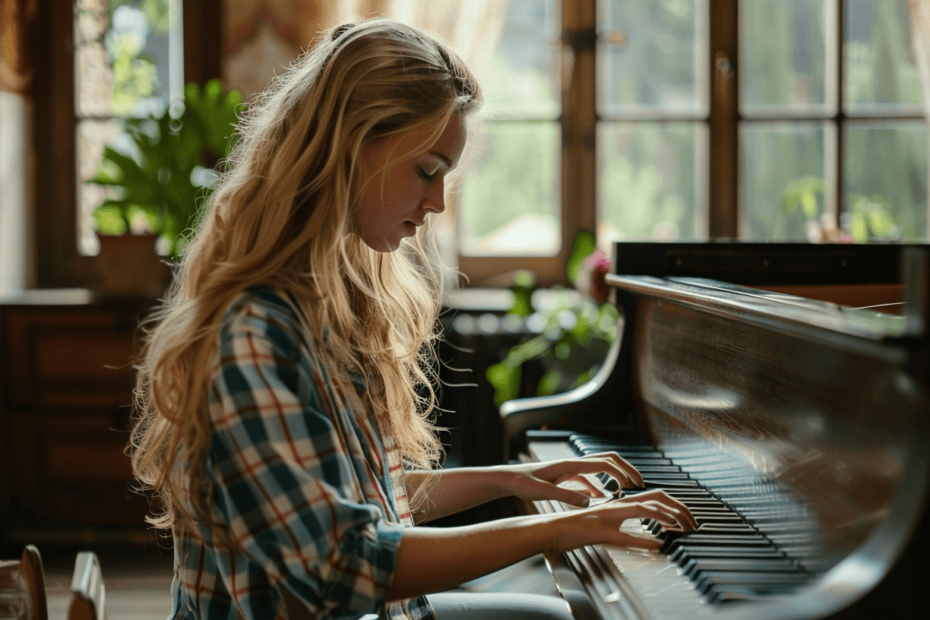Welcome, budding pianists! If you’re just stepping into the world of piano, understanding how to care for your instrument is as crucial as the notes themselves. One keyword you’ll encounter often is ‘humidity piano.’ It might sound technical, but don’t worry! This guide will walk you through the 10 best tips about humidity and piano care. Let’s demystify this topic and make your journey into piano playing smooth and enjoyable.
The Vital Role of Humidity Piano Playing
When you’re starting your piano journey, understanding the impact of humidity on your instrument is key. But why is the term ‘humidity piano’ so important?
“The piano isn’t just an instrument, it’s a living entity that responds to its environment. Humidity has a significant impact, which is why we need to be mindful of it.”
– Franz Liszt
How Humidity Affects Your Piano
Humidity, or the amount of moisture in the air, plays a significant role in the overall health of your piano. When the humidity level is too high, the wooden parts of your piano can swell. Conversely, if the humidity level is too low, these parts can shrink. Both scenarios can lead to tuning instability and even structural damage over time.

Why Humidity Matters for Beginners
As a beginner, you might think that this is a concern for professional players or collectors only. But that’s not the case. The effects of humidity can influence the sound of your piano and your progress as a learner. If your piano is not in its best condition due to humidity issues, the sound quality may diminish. This can affect your learning experience and your motivation to play.
Remember, every great pianist starts with understanding their instrument and how to care for it. So, don’t be intimidated by the term ‘humidity piano.’ With the right knowledge and a little bit of care, you can ensure your piano stays in top condition, ready to accompany you on your musical journey.
Did you know? Pianos are highly sensitive to humidity. Humidity levels above or below 42% can cause issues with the piano’s tuning, action, and the condition of the wood. (Source: Piano Technicians Guild, Website)
10 Empowering Tips About Humidity and Piano
Ready to dive deeper? Let’s explore the 10 best tips about humidity and piano to help you or your students master the art of piano maintenance.
Tip 1: Monitor Humidity Levels
Keep a hygrometer in the room with your piano to monitor humidity levels. It’s an affordable device that can help you maintain the ideal humidity level for your piano, which is generally around 40-50%.
Tip 2: Use a Dehumidifier or Humidifier
If you live in an area with extreme weather conditions, consider investing in a dehumidifier or humidifier. These devices can help maintain an optimal humidity level in your piano room.
Tip 3: Consider Room Placement
Avoid placing your piano near windows, doors, or vents where it can be exposed to drafts or direct sunlight. These can cause rapid changes in humidity which can harm your piano.
Did you know? It’s a common myth that placing a piano against an interior wall can protect it from changes in humidity. However, this is not true because humidity changes occur throughout the room, not just near exterior walls. (Source: Steinway & Sons, Website)

Tip 4: Regularly Tune Your Piano
Regular tuning not only ensures your piano sounds its best but can also help detect early signs of humidity damage.
Tip 5: Invest in a Piano Cover
A good quality piano cover can help protect your piano from dust and minor changes in humidity.
Tip 6: Avoid Using Heating or Cooling Appliances Nearby
Appliances like heaters or air conditioners can drastically change the humidity level. Try to keep such appliances at a distance from your piano.
Printable FREE Für Elise Music Sheets PDF for COMPLETE Beginners

Tip 7: Regular Cleaning
Regularly clean your piano to remove any dust or debris that can attract moisture. This helps to prevent humidity-related damage.
Tip 8: Get a Professional Inspection
Have your piano inspected by a professional regularly. They can provide personalized advice based on the specific needs of your piano.
Tip 9: Install a Piano Life Saver System
This is a humidity control system designed specifically for pianos. It maintains the right moisture levels within the piano all year round, irrespective of changes in external conditions.
Tip 10: Be Patient
Remember, learning piano is a journey. Don’t be discouraged by the challenges. With the right care and maintenance, your piano can serve as a lifelong companion in your musical adventure.
Did you know? The story of the world’s oldest piano (built in 1720) surviving in a museum is attributed to the museum’s careful control of humidity around the piano. (Source: Metropolitan Museum of Art, Website)

In conclusion, understanding the impact of humidity on your piano is crucial, whether you’re a beginner or a regular player. The term ‘humidity piano’ is not as intimidating as it sounds when you know how to manage it effectively. Remember these ten tips: monitor humidity levels, use a dehumidifier or humidifier as needed, consider the placement of your piano in the room, get your piano tuned regularly, invest in a good piano cover, keep heating or cooling appliances at a distance, clean your piano regularly, have it inspected by a professional, consider installing a Piano Life Saver System, and most importantly, be patient with your learning journey.
Taking care of your piano ensures it remains in an optimal condition, providing you with the best sound quality and playing experience. It’s a small price to pay for a journey filled with beautiful melodies and personal growth. So, keep playing, keep learning and remember; every note you play is a step towards perfecting the art of piano. Let’s make beautiful music together!


